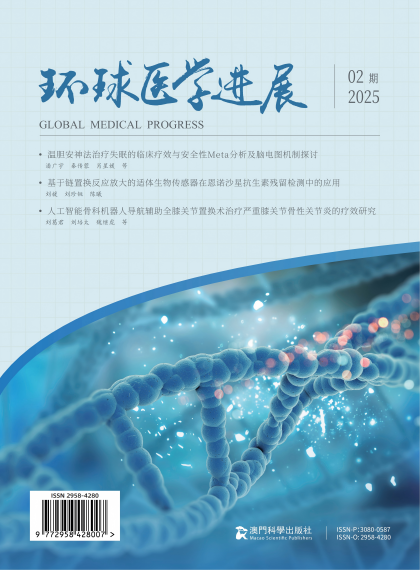摘 要:
目的:系统评价穴位贴敷治疗儿童咳嗽变异性哮喘(CVA)的临床疗效及安全性。方法:通过计算机检索中国知网(CNKI)、万方数据库、维普(VIP)、中国生物医学文献数据库(CBM)、PubMed、Cochrane Library、Embase 等数据库,收集建库至2024年12月发表的随机对照试验(RCT),纳入文献共12篇,采用RevMan 5.4 软件进行Meta分析。结果:共纳入12项RCT,涉及CVA患儿1 064例。Meta分析结果显示:穴位贴敷治疗组的总有效率显著高于对照组(P<0.05),部分研究报道有效率可达90%以上。在肺功能方面,贴敷组患儿的第一秒用力呼气容积(FEV1)、FEV1/FVC 及呼气峰流速(PEF)水平均显著改善,优于对照组(P<0.05)。在免疫学指标方面,治疗后观察组血清IgE、IL-4、IL-5、TNF-α等炎症因子显著降低,而IgG、IgA、CD4+水平升高,CD8+下降(P<0.05)。部分研究还提示穴位贴敷有助于改善气道重塑相关因子(如VEGF、MMP-2、MMP-9),纠正血气指标(PaO₂升高,PaCO₂降低),并能有效降低复发率、缩短复发咳嗽持续时间。在安全性方面,多数研究未见严重不良反应,仅个别患儿出现轻度皮肤红斑或瘙痒,经对症处理后缓解,提示穴位贴敷安全性较高。结论:穴位贴敷可在常规治疗基础上显著提高CVA患儿的临床疗效,改善肺通气功能,调节免疫功能,降低炎症反应,并在减少复发率、改善远期疗效方面具有优势,且安全性良好。
关键词:咳嗽变异性哮喘;穴位贴敷;随机对照试验;Meta分析
Abstract:
Objective: To systematically evaluate the clinical efficacy and safety of acupoint application therapy for children with cough variant asthma (CVA).Methods: Databases including CNKI, Wanfang, VIP, CBM, PubMed, Cochrane Library, and Embase were searched for randomized controlled trials (RCTs) published from database inception to December 2024. Twelve eligible studies were included. Meta-analysis was conducted using RevMan 5.4 software.Results: A total of 12 RCTs involving 1,064 pediatric patients with CVA were included. Meta-analysis showed that the total effective rate in the acupoint application group was significantly higher than that in the control group (P < 0.05), with some studies reporting efficacy rates above 90%. Pulmonary function indices, including forced expiratory volume in 1 second (FEV1), FEV1/FVC ratio, and peak expiratory flow (PEF), improved significantly in the treatment group compared with the control group (P < 0.05). Regarding immunological outcomes, serum IgE, IL-4, IL-5, and TNF-α levels decreased significantly after treatment, while IgG, IgA, and CD4+ levels increased and CD8+ decreased in the observation group (P < 0.05). Some studies further indicated that acupoint application may help regulate airway remodeling-related factors (such as VEGF, MMP-2, and MMP-9), improve blood gas parameters (increased PaO₂, decreased PaCO₂), reduce recurrence rates, and shorten the duration of recurrent cough. In terms of safety, most studies reported no severe adverse reactions. Only a few children experienced mild skin erythema or itching, which resolved after symptomatic treatment, suggesting good safety of acupoint application.Conclusion: Acupoint application, as an adjunct to conventional therapy, can significantly improve the clinical efficacy in children with CVA, enhance pulmonary ventilation function, modulate immune function, and reduce inflammatory responses. It also shows advantages in lowering recurrence rates and improving long-term outcomes, with a favorable safety profile.
Keywords: Cough variant asthma; Acupoint application; Randomized controlled trial; Meta-analysis
--
